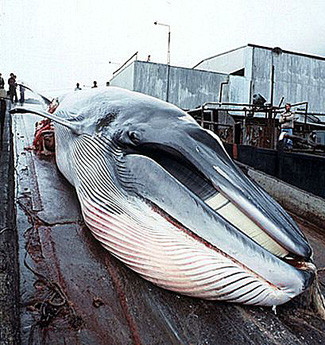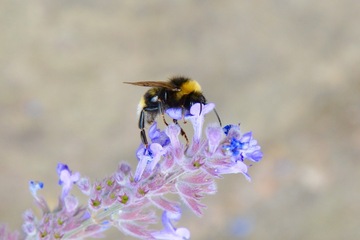Iceland Approves Killing of 383 Whales in New Hunt
Despite a sharp drop in the demand for whale meat in Japan and Iceland during recent years, Iceland launched its 2015 whaling season with the country’s fisheries ministry issuing a quota of 154 fin whales and 229 minke whales.
A shipment of whale meat, illegally caught in earlier hunts in violation of the International Whaling Commission’s moratorium on commercial whaling, is now en route from Iceland to Japan across Russia’s Arctic coastline.
A group of environmentalists has petitioned Russian President Vladimir Putin, asking him to block the ship’s voyage.
The group Sea Shepherd says the Winter Bay’s illegal cargo “could not be sent via the Panama or Suez canal, and the ship could not stop in any European, North American, South American or African ports.”

Earth Is Losing Its Bumblebees
Climate change is causing wild bumblebees to disappear from large swaths of their historical range, which could spell disaster for pollinating crops in Europe and North America, new research suggests.
As global temperatures have risen, bumblebees have disappeared from the warmest regions they occupy, but have not spread northward to take advantage of new habitat.
Honeybees have made headlines in recent years because their numbers are plummeting in a mysterious process called colony collapse disorder. Scientists have proposed a range of contributing factors, from overuse of neonicotinoid pesticides that disorient the buzzing insects to the rise of bee parasites.
But bumblebees are the real superstars of the pollinating world. Unlike almost every other bee species, bumblebees are out in the fields, sipping nectar and pollinating plants from spring to late fall, said study co-author Laurence Packer, a biologist at York University in Toronto.
Most other bee species pollinate just a handful of plants. What's more, bumblebees have unique moves, such as the ability to "buzz pollinate" tricky flowers like tomatoes, said study co-author Alana Pindar, a biologist at the University of Ottawa.
Yet despite warming in northern latitudes, bumblebees haven't figured out a way to take advantage of the now less-frigid northern climes. The study, which was published in the journal Science, did not show any correlation between land-use practices or pesticide use and bumblebee populations.
Bees are dying out in the southern end of their range because of the rise of extreme heat waves.
But it's not clear why they haven't flown north to make up lost ground. Many stars need to align, from just the right flowers to the right winter shelter, for queens to produce new bees for the next season; so perhaps they simply can't reproduce fast enough for new colonies to take root, said study co-author, Sheila Coila from Wildlife Preservation Canada.

No comments:
Post a Comment